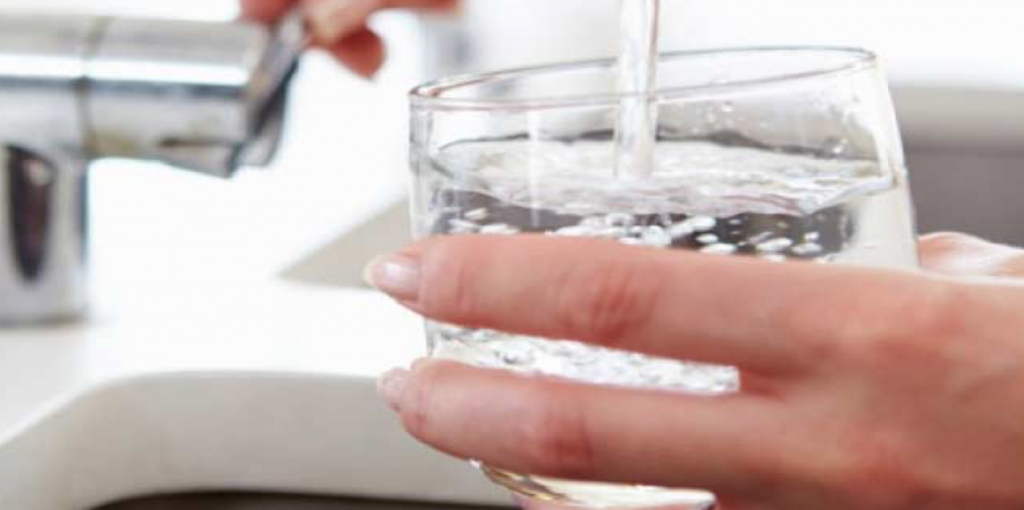Types of Water: 9 Different Sources and Brands, Plus Benefits & Risks

Understanding the Different Types of Water
Tap Water
Source
Tap water comes from municipal water supplies and is treated to meet safety standards before being distributed to households through pipes.
Benefits
Easily accessible and widely available.
Generally inexpensive compared to bottled water.
Typically regulated by government agencies to ensure safety.
Risks
May contain trace amounts of contaminants such as chlorine, fluoride, lead, and other pollutants.
Quality can vary depending on location and water treatment processes.
Some individuals prefer the taste of filtered or bottled water over tap water.
Bottled Spring Water
Source
Spring water comes from natural springs and is bottled directly at the source without undergoing significant treatment.
Benefits
Often perceived as being of higher quality and purity than tap water.
May contain minerals naturally present in the spring, which can contribute to flavor and potential health benefits.
Risks
Environmental concerns related to the production, transportation, and disposal of plastic bottles.
Limited regulation compared to tap water, leading to potential variability in quality and safety.
Costlier than tap water and may not be sustainable for daily consumption.
Purified Water
Source
Purified water undergoes filtration or distillation processes to remove impurities and contaminants, resulting in a high level of purity.
Benefits
Free from most contaminants and pollutants, making it suitable for individuals with specific health concerns.
Often used in medical settings and laboratories due to its purity.
Risks
May lack minerals essential for health, as they are removed during the purification process.
Environmental impact associated with the production and disposal of purification systems and filters.
Costlier than tap water and may require additional equipment for home purification.
Mineral Water
Source
Mineral water comes from natural springs or wells and contains a high concentration of minerals such as calcium, magnesium, and potassium.
Benefits
Provides essential minerals that contribute to overall health and well-being.
Often perceived as having a refreshing taste due to its mineral content.
May offer potential health benefits, such as improved bone health and hydrati
Risks
High mineral content may not be suitable for individuals with certain medical conditions or dietary restrictions.
Costlier than tap water and may not be necessary for everyone’s daily hydration needs.
Environmental concerns related to the production and transportation of bottled mineral water.
Sparkling Water
Source
Sparkling water is carbonated water that contains dissolved carbon dioxide gas, which creates bubbles and a fizzy texture.
Benefits
Provides a refreshing alternative to still water, with added effervescence and flavor options.
May help satisfy cravings for carbonated beverages without added sugars or artificial sweeteners.
Can be enjoyed on its own or used as a mixer in cocktails and other beverages.
Risks
Some sparkling waters may contain added flavors, sweeteners, or preservatives, which can detract from their healthfulness.
Carbonation may contribute to bloating or gas in some individuals, especially when consumed in large quantities.
Environmental impact associated with the production and disposal of single-use plastic bottles.
Alkaline Water
Source
Alkaline water has a higher pH level than regular tap water, typically achieved through the addition of alkaline minerals or electrolysis.
Benefits
Believed by some to offer potential health benefits such as improved hydration, detoxification, and acid-base balance.
May have a smoother taste and reduced acidity compared to regular water.
Can be produced at home using alkaline water pitchers or countertop systems.
Risks
Limited scientific evidence to support many of the claimed health benefits of alkaline water.
High pH levels may not be suitable for individuals with certain medical conditions or digestive sensitivities.
Costlier than tap water and may require specialized equipment for home production.
Coconut Water
Source
Coconut water is the clear liquid found inside young, green coconuts and is often marketed as a natural sports drink due to its electrolyte content.
Benefits
Naturally rich in electrolytes such as potassium, magnesium, and sodium, which can help replenish fluids and minerals lost through sweat.
Low in calories and sugar compared to many commercial sports drinks.
Contains natural flavors and sweetness, making it a refreshing alternative to plain wate
Risks
Higher in calories and sugar than plain water, which may not be suitable for individuals with diabetes or those watching their calorie intake.
Quality and nutritional content can vary depending on factors such as processing methods and storage conditions.
Environmental concerns related to the production and transportation of bottled coconut water.
Flavored Water
Source
Flavored water is infused with natural or artificial flavors to enhance taste and appeal.
Benefit
Offers a variety of flavor options to suit individual preferences and cravings.
Can encourage increased water consumption, especially among individuals who find plain water unappealing.
Low in calories and sugar compared to many other flavored beverages.
Risks
Some flavored waters may contain added sugars, artificial sweeteners, or other additives, which can detract from their healthfulness.
Consumption of artificially sweetened flavored water has been associated with potential negative health effects, including changes in gut microbiota and metabolic response.
Environmental impact associated with the production and disposal of single-use plastic bottles.
Filtered Water
Source
Filtered water undergoes filtration processes to remove impurities and contaminants, resulting in improved taste and quality.
Benefits
Removes chlorine, sediment, heavy metals, and other pollutants commonly found in tap water, resulting in cleaner and better-tasting water.
Can be produced at home using faucet-mounted, pitcher, or countertop filtration systems.
Cost-effective and environmentally friendly alternative to bottled water.
Risks
Quality of filtered water may vary depending on the type of filtration system used and the maintenance of the equipment.
Some filtration methods may remove beneficial minerals along with contaminants, potentially reducing the nutritional value of the water.
Initial investment and ongoing maintenance costs associated with purchasing and replacing filtration systems and cartridges.
FAQs About Types of Water
Is bottled water safer than tap water?
Bottled water is regulated by the Food and Drug Administration (FDA) and must meet safety standards, but tap water is subject to stricter regulations by the Environmental Protection Agency (EPA). Both can be safe to drink, but quality may vary depending on location and treatment processes.
What is the healthiest type of water to drink?
The healthiest type of water to drink is typically clean, filtered tap water, as it provides hydration without added contaminants or environmental impact. However, preferences may vary, and individuals may choose other types of water based on taste, convenience, and perceived health benefits.
Is alkaline water better for you than regular water?
There is limited scientific evidence to support many of the claimed health benefits of alkaline water. While some individuals may prefer the taste or believe it offers health advantages, others may not notice any significant difference compared to regular water.
Can drinking coconut water replace electrolyte drinks?
Coconut water can be a natural source of electrolytes and may help replenish fluids and minerals lost through sweat, making it a potential alternative to commercial electrolyte drinks for some individuals. However, it’s essential to consider individual hydration needs and preferences.
Are there any risks associated with flavored water?
Flavored waters may contain added sugars, artificial sweeteners, or other additives, which can detract from their healthfulness. Consumption of artificially sweetened flavored water has been associated with potential negative health effects, so it’s essential to read labels and choose options with minimal additives.
Is filtered water better than bottled water?
Filtered water is often considered a more sustainable and cost-effective alternative to bottled water, as it reduces plastic waste and provides comparable quality without the environmental impact. However, preferences may vary based on convenience, taste, and individual needs.
Can I drink too much water?
While staying hydrated is essential for overall health, drinking excessive amounts of water can lead to a condition known as water intoxication or hyponatremia, which can be dangerous. It’s essential to listen to your body’s thirst signals and avoid excessive water consumption, especially during intense physical activity.
Conclusion
Water is a vital element of life, and understanding the different types of water available can help you make informed choices about what you consume. Whether you prefer tap water, bottled water, or filtered water, each type has its unique characteristics, benefits, and potential risks to consider. By knowing the sources and brands of water available, along with their respective benefits and drawbacks, you can select the option that best suits your preferences, needs, and lifestyle. Whether you’re staying hydrated at home, on the go, or during physical activity, choosing the right type of water can contribute to your overall health and well-being.
- Complete Review Top CBD Tinctures By Empe-USA - May 7, 2024
- Tripping Through Taste: A Wild Ride with Just Delta’s THC Gummies Galore! - May 7, 2024
- Types of Water: 9 Different Sources and Brands, Plus Benefits & Risks - April 17, 2024

